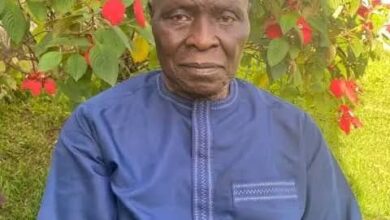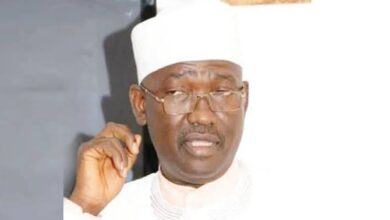Hafsoh’s Murder: A Tragic Betrayal of Our Values

Wahab Oba
The gruesome murder and dismemberment of a young undergraduate, Hafsoh Yetunde Lawal, by a supposed Islamic cleric in Ilorin is not only heartbreaking but a tragic betrayal of the moral and religious values that define us as a people. This barbaric act is alien to our heritage, a direct affront to our Islamic ethics, and an insult to the teachings of the Prophet Muhammad (peace be upon him), who emphasized the sanctity of life, justice, and compassion.
Let it be clear: this individual does not represent Ilorin, its people, or Islam. Ilorin is a city of scholars, a cradle of Islamic learning where clerics are revered for their wisdom, piety, and service to humanity. No true Islamic cleric would commit such an atrocity. Our people are known for their love for one another, their kindness, and their ability to repay evil with good. We are not vengeful, nor do we harbor hatred in our hearts. This act is an aberration—one that must never be allowed to take root in our society.
This incident is a wake-up call for all of us—parents, guardians, religious institutions, and communities at large. The upbringing of a child is not a task for parents alone; it is a collective responsibility. We must not only provide for their material needs but also actively guide them, monitor their associations, and instill in them the values of decency, self-discipline, and respect for human life. It is time we became more vigilant about the influences shaping the minds of our youth.
Religious institutions must also take up the responsibility of reinforcing the true teachings of Islam. No one should be allowed to misuse religious identity to commit evil. The government and law enforcement agencies must also play their part by ensuring swift and decisive action. Justice for the bereaved family is not just their right; it is a necessity for the moral conscience of our society.
This tragedy also brings to light another growing concern—the diversion of some Islamic clerics from their noble calling to personal ambitions and political interests. While Islam encourages political engagement for the betterment of society, it is troubling to see some clerics prioritize selfish gains over their religious responsibilities. The role of an Islamic scholar is not to chase power but to provide spiritual and moral guidance.
At a time when moral decay is on the rise, our clerics must return to their primary duty—enlightening the people, preaching against evil, guiding the youth, and fostering a community built on the true values of Islam. Our mosques must once again become centers of learning, character-building, and societal transformation, not platforms for political scheming. True leadership in Islam is about service, sacrifice, and accountability before Allah, not about wealth, influence, or political connections.
The Ilorin we know and cherish is a land of peace, a city of scholars, and a community built on love and mutual respect. We must not allow this tragic incident to define us. Instead, we must use it as a catalyst to renew our commitment to moral and religious rejuvenation. We call on law enforcement agencies to ensure that justice is served swiftly and that such heinous crimes never go unpunished.
May Allah grant the deceased eternal rest, console her family, and guide us all toward a better, more just society. May our clerics rededicate themselves to their true mission, and may our communities come together to uphold the values that have always defined us as a people.





